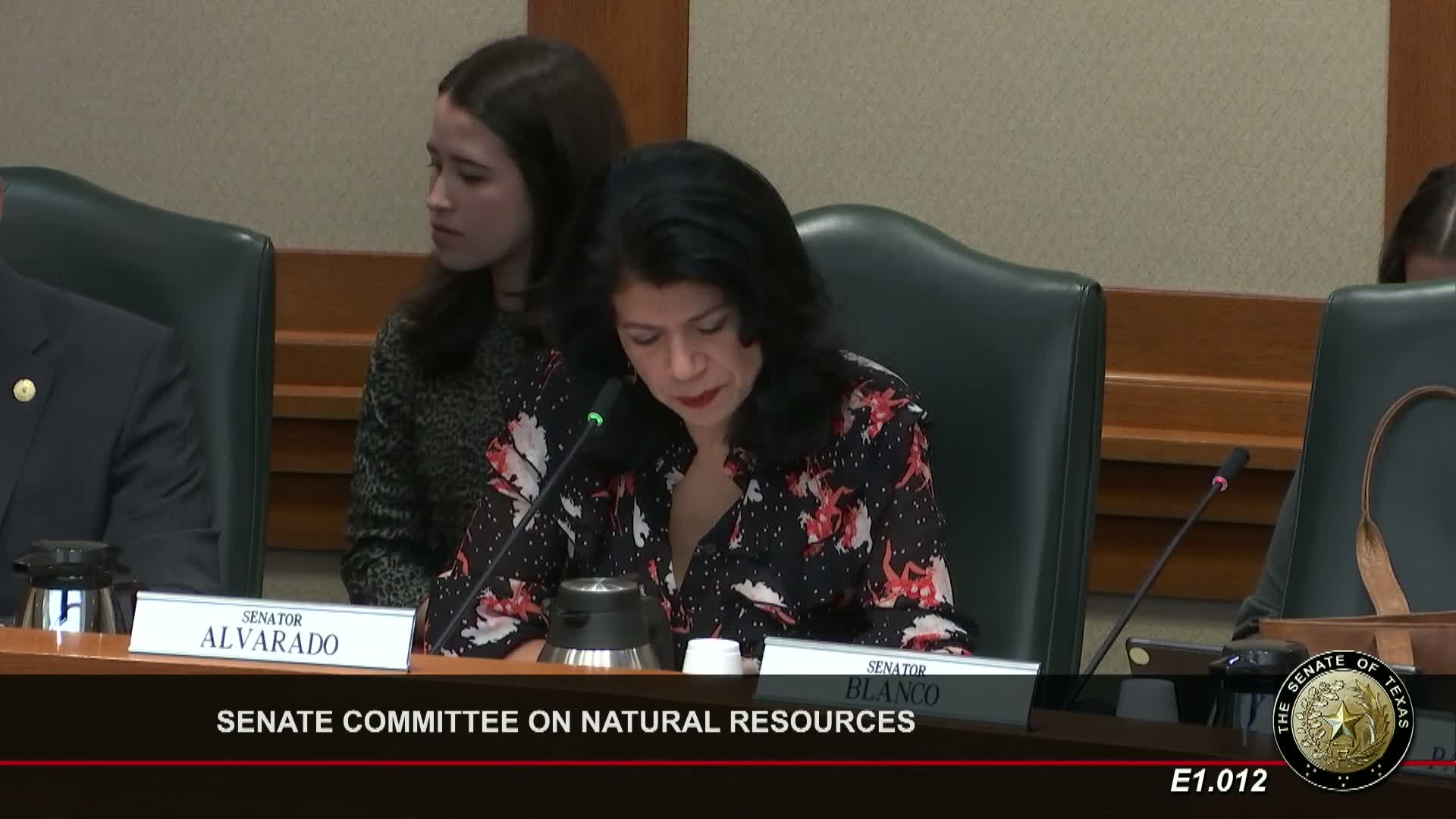Article not found
This article is no longer available. But don't worry—we've gathered other articles that discuss the same topic.
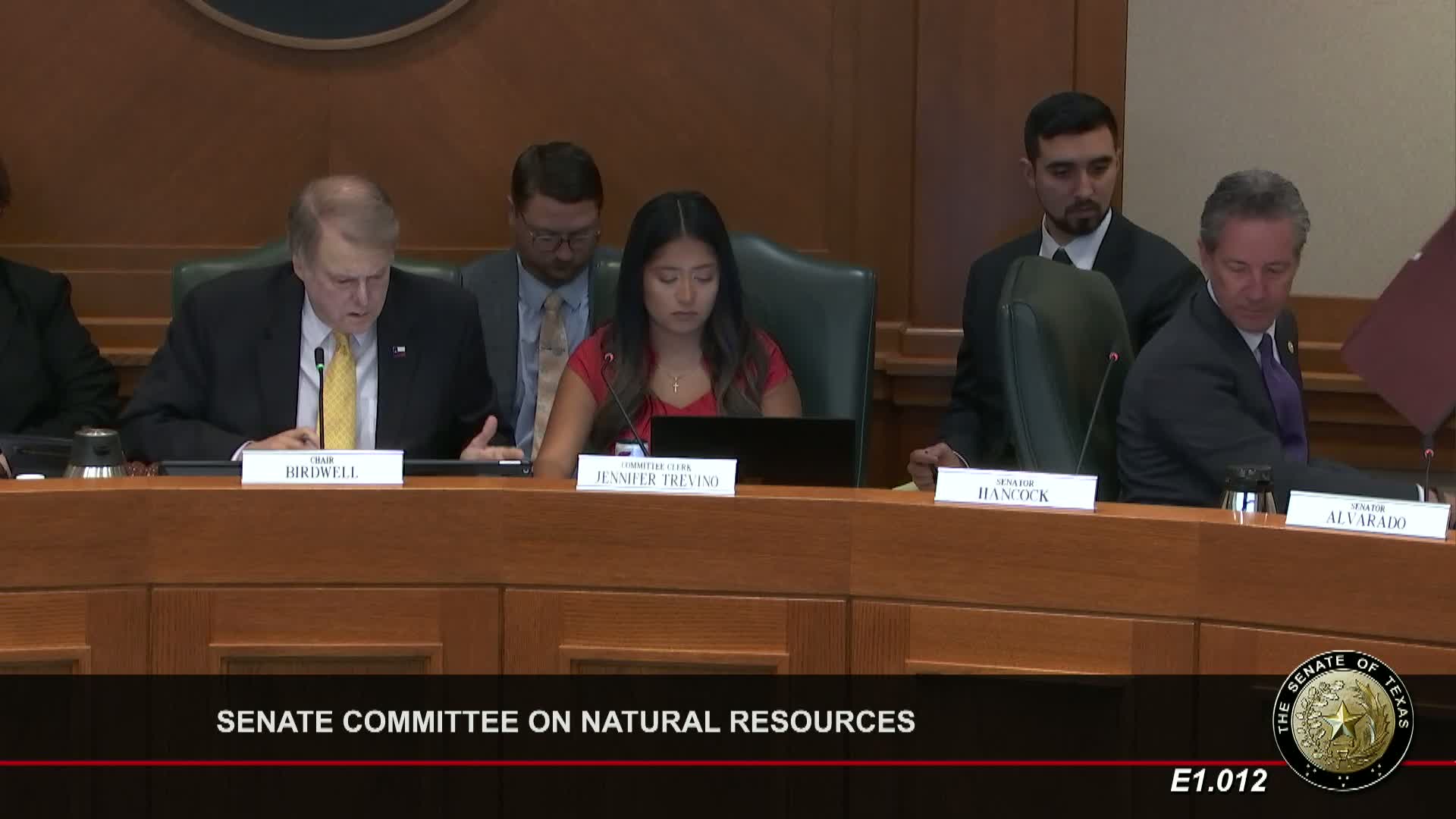
Senate hears proposal for industry‑administered beverage container refund program to boost recycling
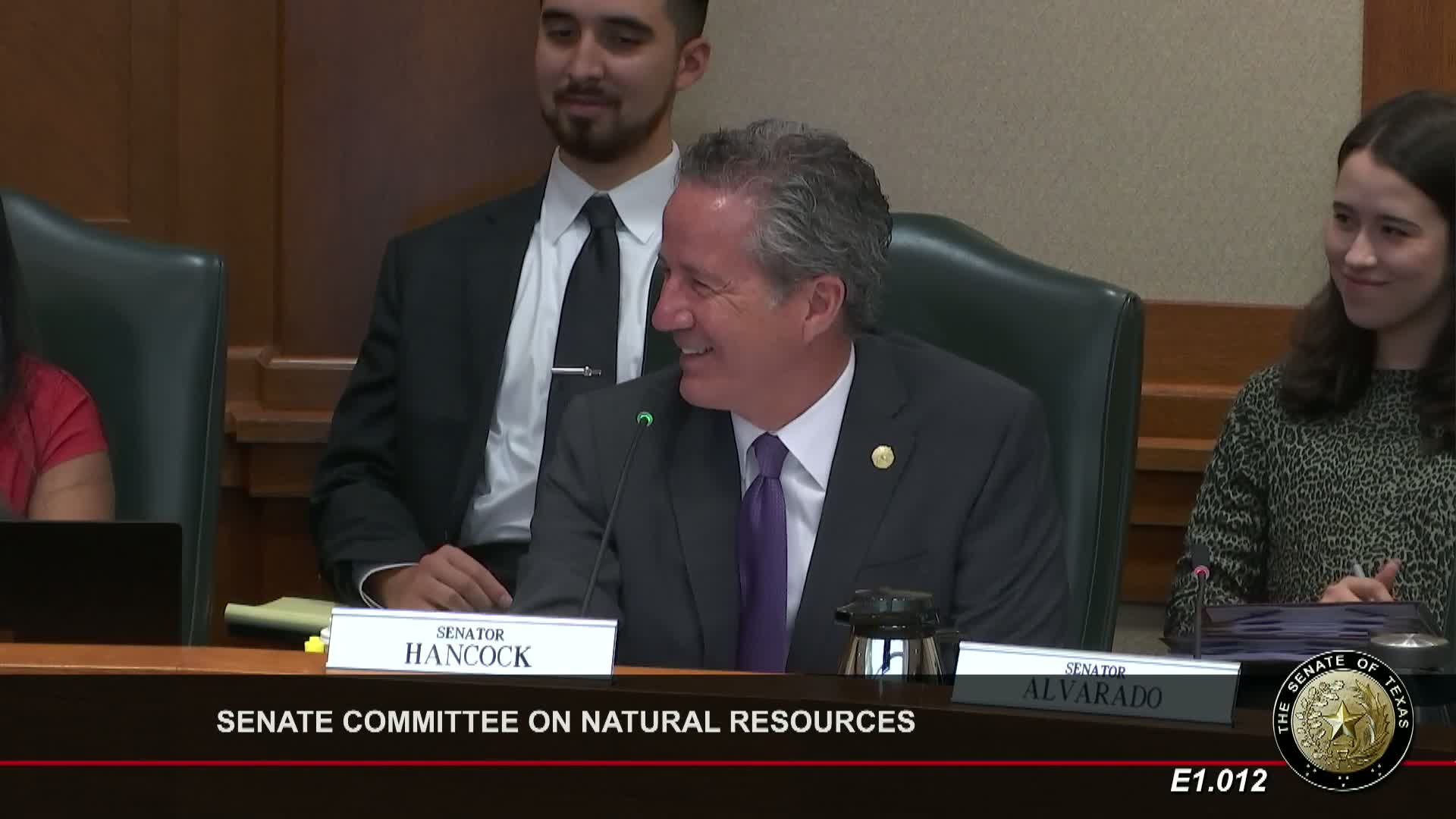
Senate panel weighs Recycling Market Development Program and Texas Recycling Fund
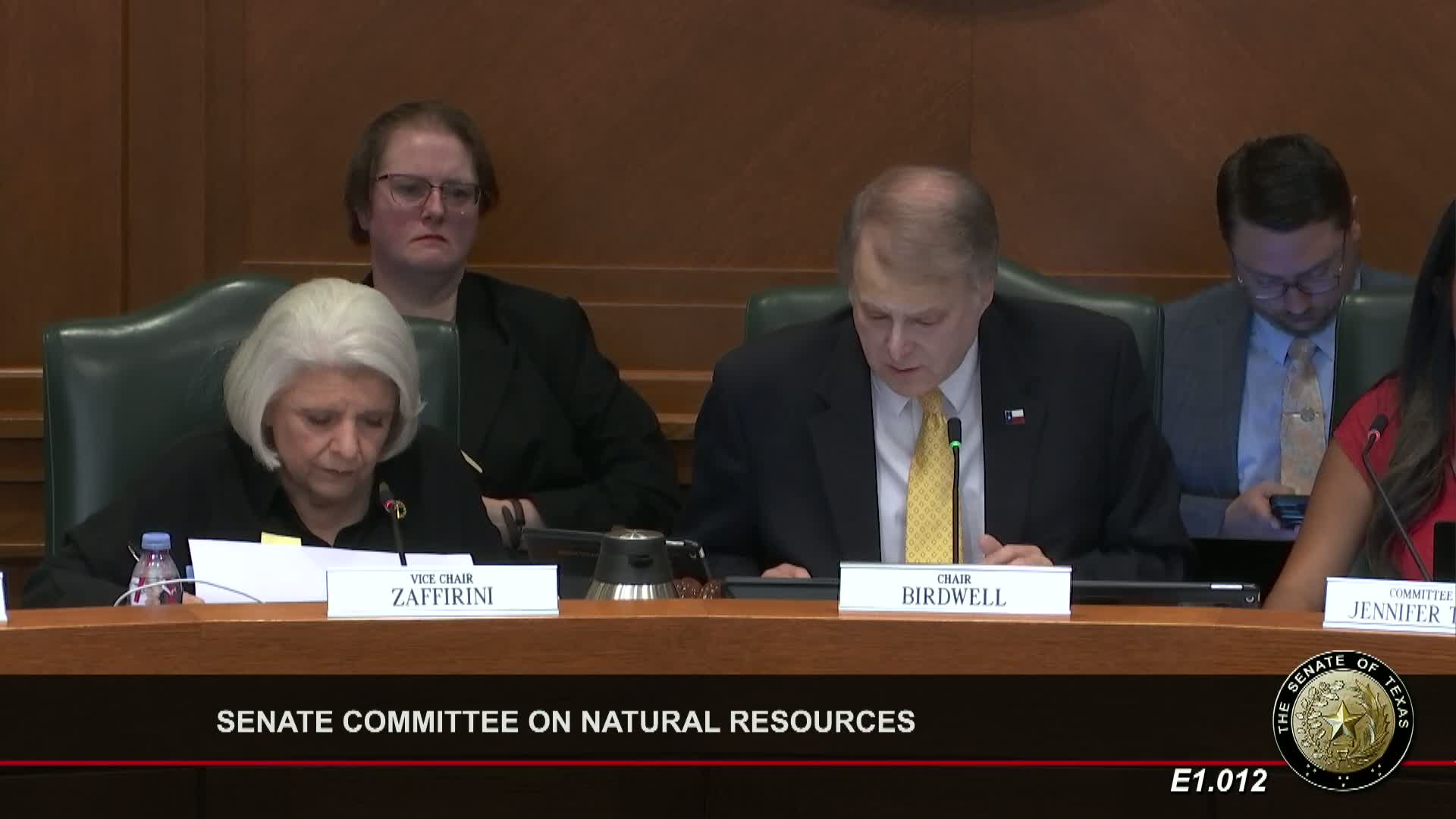
Committee questions fiscal note as bill would expand Railroad Commission role inspecting electric lines at well sites
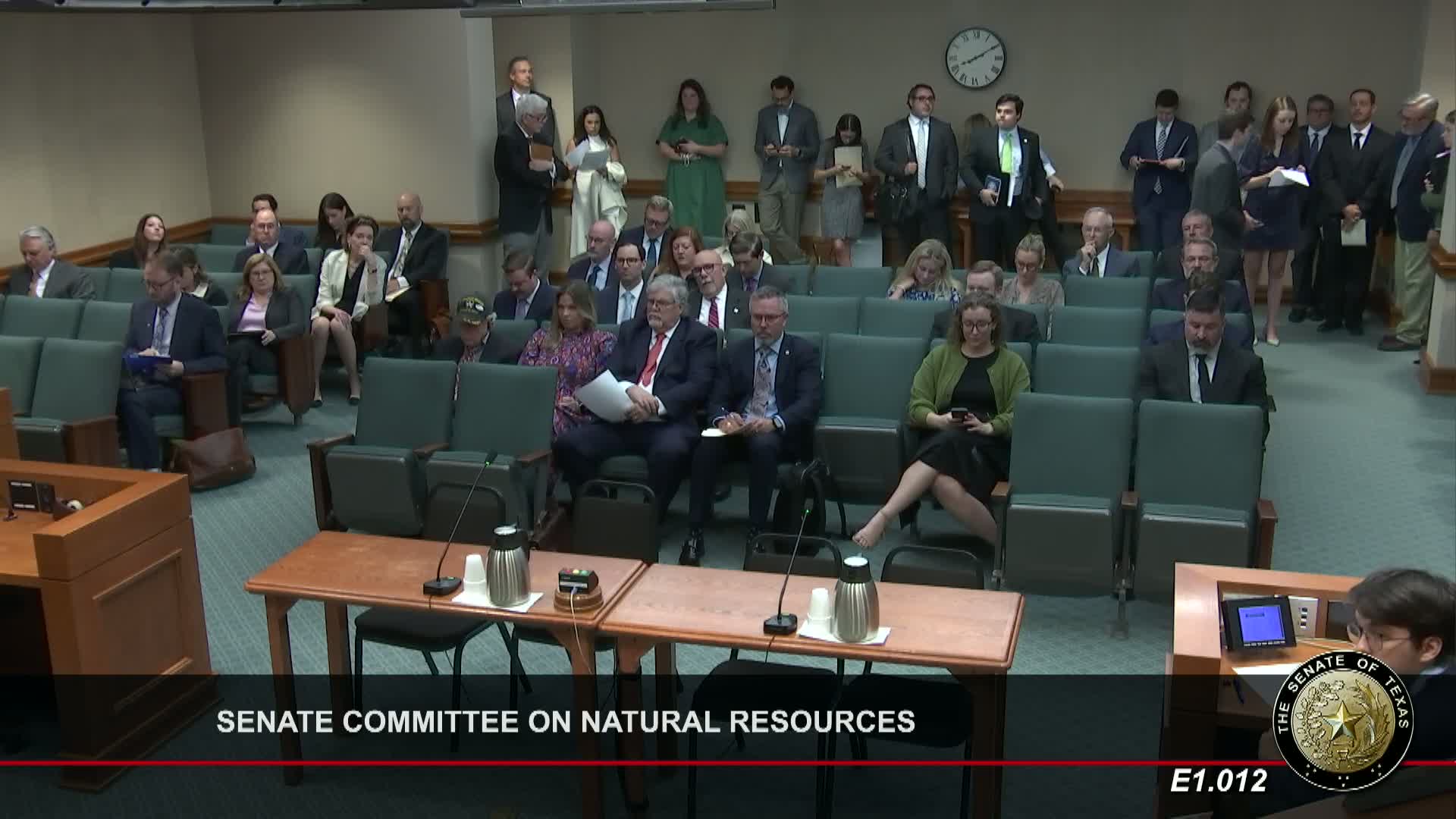
Committee hears plan for temporary self‑insurance pool to expand prescribed burning
